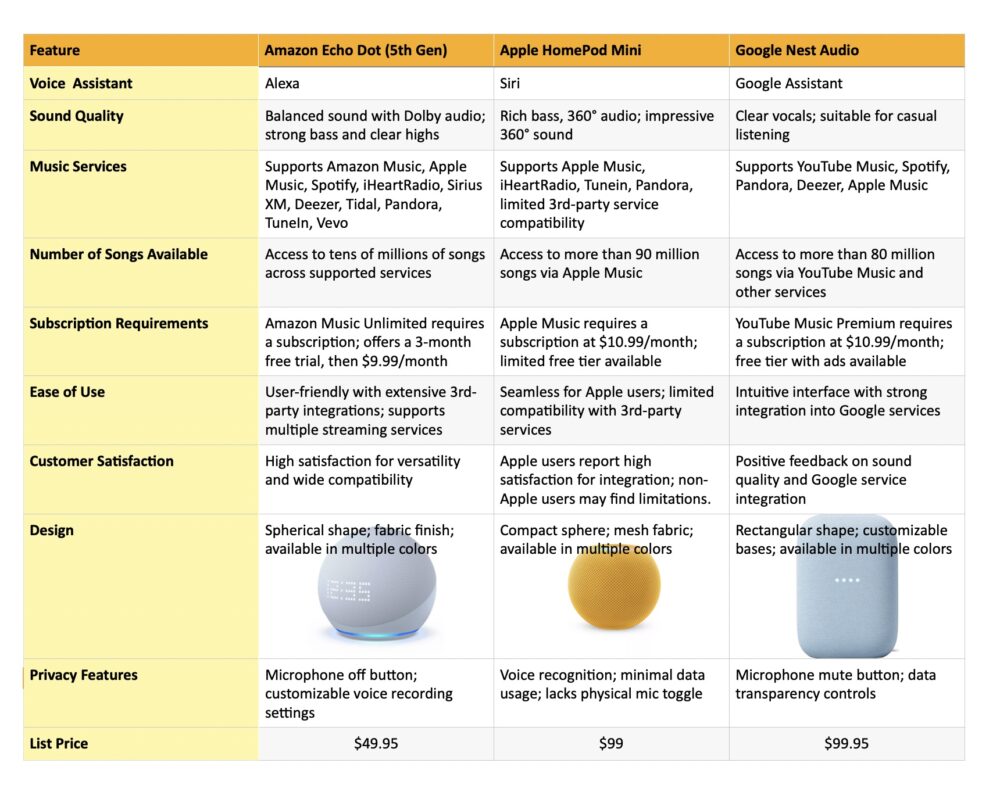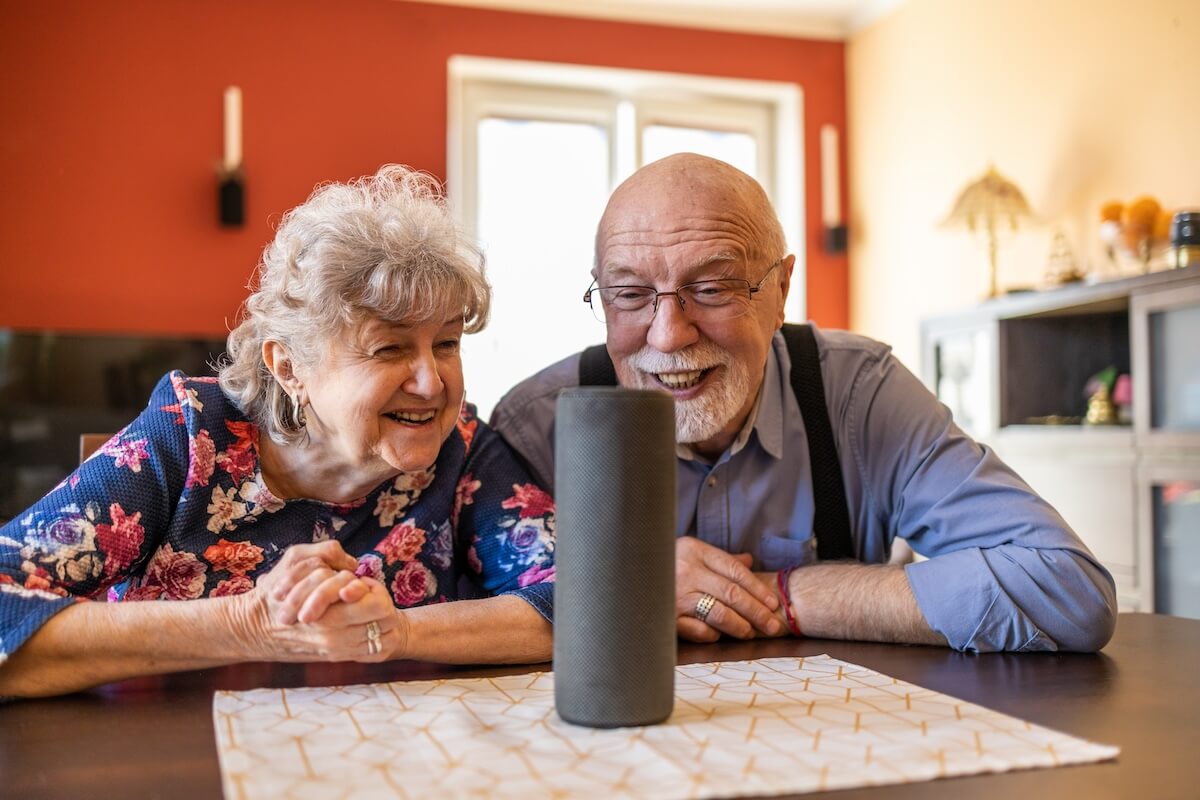Few gifts are as meaningful and loving as the gift of music.
For a person living with dementia, a voice-activated smart speaker can be a wonderful holiday gift that offers joy, connection, and comfort. That’s because music uplifts the spirit, reduces anxiety, and promotes relaxation—not just for your loved one, but also for you and other care partners.
These compact devices deliver impressive sound quality and are easy to set up. They provide quick access to favorite tunes. And they are always on hand, ready to play any song, anytime. I enjoy asking mine to play top hits from when I was 10, 12 or 16. What a great way to enrich your loved one’s daily life and spark cherished memories!
Should your loved one need to move to a care facility, the device can easily go along. All you need to do is connect it to the new location’s Wi-Fi.
You can also use a smart speaker to generate a playlist, based on a particular song, genre, or artist. Nothing compares to playing songs you know are meaningful to your loved one! Using smart speakers’ built-in AI technology, you can quickly begin to curate a personalized playlist of their favorite tracks that will brighten their day and spark cherished memories.
Getting Started
Connect the device to your Wi-Fi network, subscribe to a music service, and determine the best questions that will create the music your loved one enjoys. Depending on the device, just say “Alexa,” “Siri,” or “Hey Google” followed by requests such as:
- “Play (song name)” or “Play (song name) by (artist name).”
- “Play top songs from (year)(decade).”
- “Play (album name).”
- “Play (playlist name).”
If the music resonates for your loved one, ask the smart speaker to play more songs like that one. Take notes and observe what songs give the most pleasure and refine your requests accordingly. From there, you can start building various playlists—relaxing, energizing, even a playlist for morning or bedtime routines. Smart speakers’ built-in AI makes it easier than ever to be a music detective for your loved one, and the voice-activated feature makes it simple for them to listen whenever they want.
Here’s a comparison chart for the three most popular smart speakers to aid your selection process, generated with help from ChatGPT. All have excellent sound and can play tens of millions of songs. For the music subscription, you can share a family account or create a new one. While these devices are easy to use, some people might need assistance. We want to make sure that music’s benefits are available daily and over the long term. Happy holidays!


